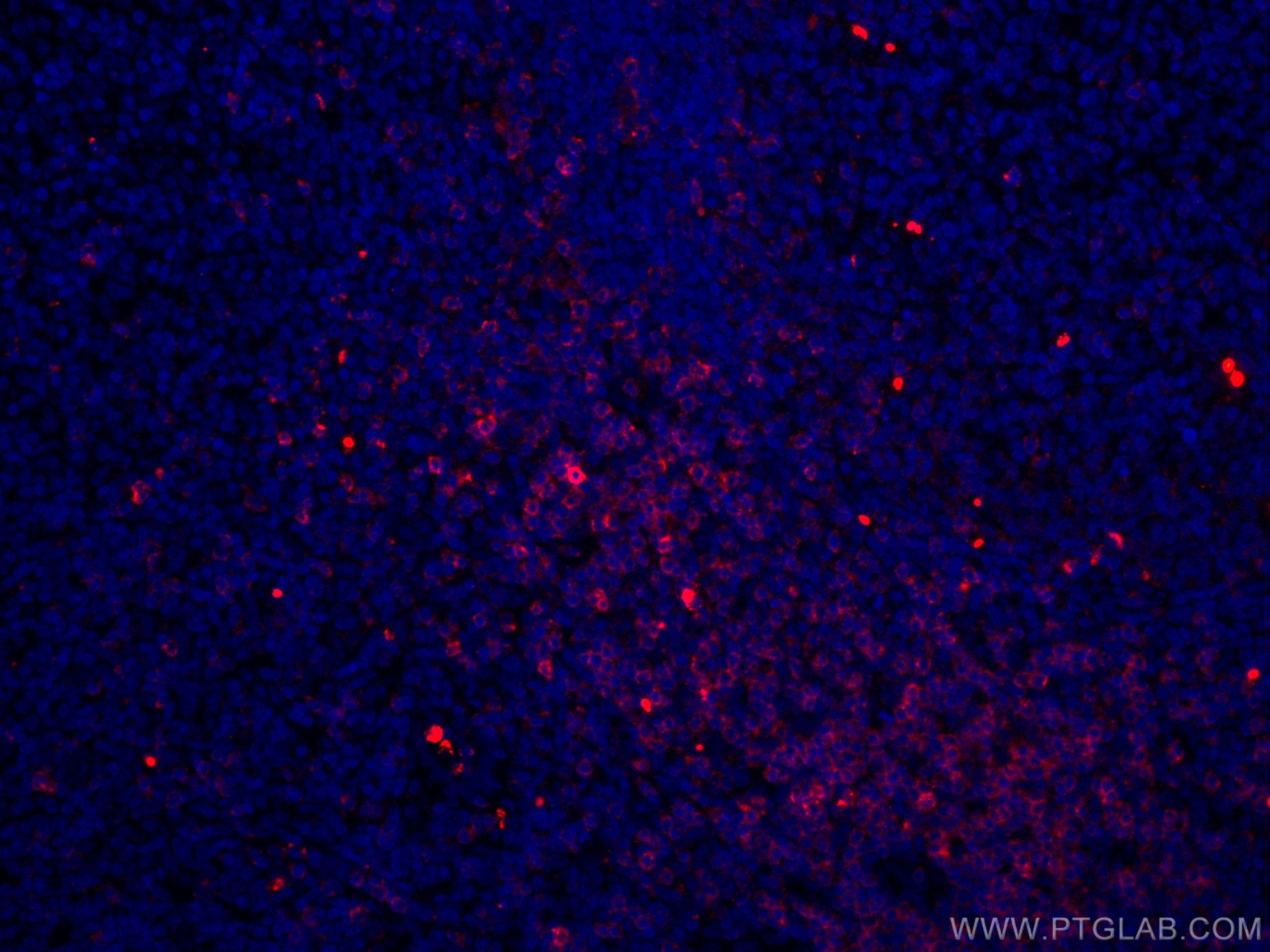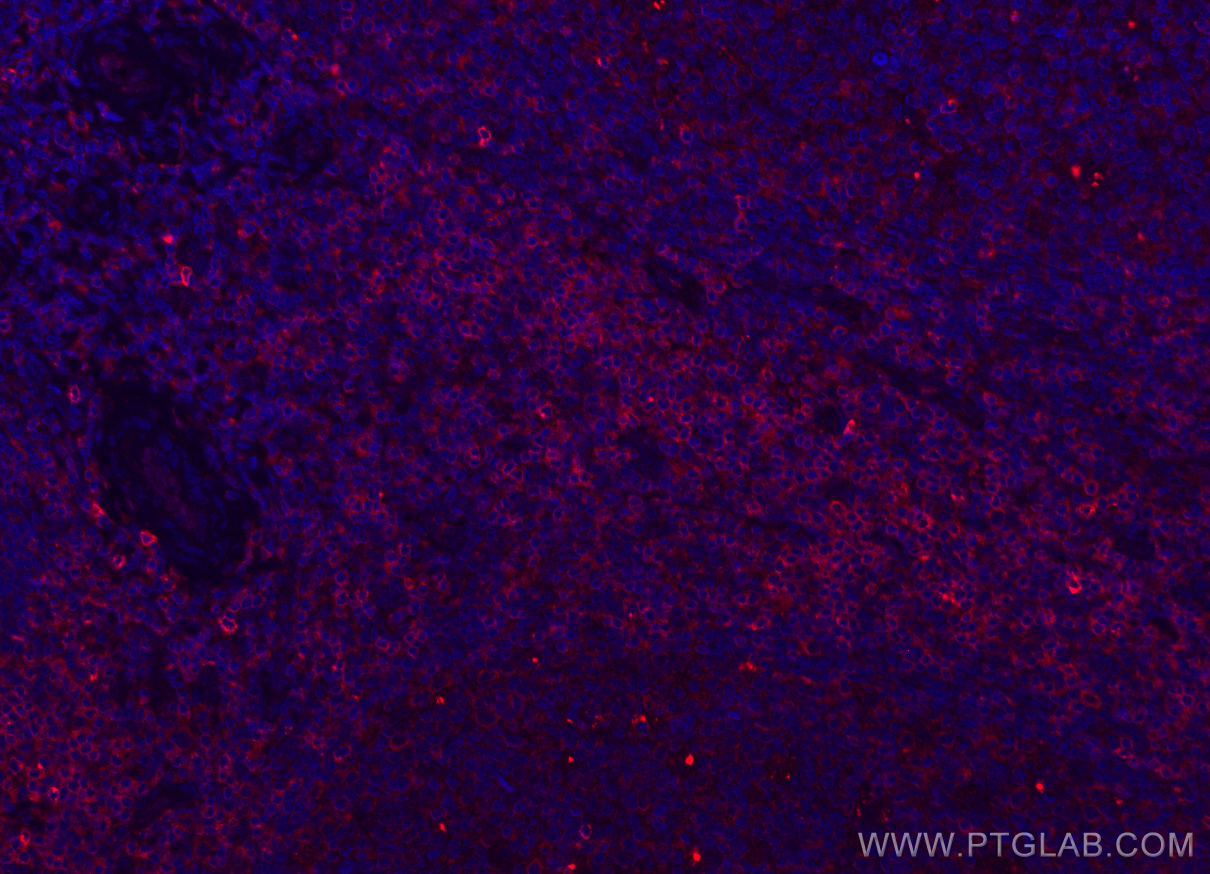验证数据展示
经过测试的应用
| Positive IF-P detected in | human tonsillitis tissue |
Planning an IHC experiment? We recommend our IHCeasy CD7 Ready-To-Use IHC Kit. CD7 primary antibody included.
For other applications, we recommend the unconjugated version of this antibody, 60209-1-Ig
推荐稀释比
| 应用 | 推荐稀释比 |
|---|---|
| Immunofluorescence (IF)-P | IF-P : 1:50-1:500 |
| It is recommended that this reagent should be titrated in each testing system to obtain optimal results. | |
| Sample-dependent, Check data in validation data gallery. | |
产品信息
CL594-60209 targets CD7 in IF-P applications and shows reactivity with human, mouse samples.
| 经测试应用 | IF-P Application Description |
| 经测试反应性 | human, mouse |
| 免疫原 | CD7 fusion protein Ag1805 种属同源性预测 |
| 宿主/亚型 | Mouse / IgG1 |
| 抗体类别 | Monoclonal |
| 产品类型 | Antibody |
| 全称 | CD7 molecule |
| 别名 | T cell leukemia antigen, T cell antigen CD7, LEU-9, GP40, CD7 molecule |
| 计算分子量 | 240 aa, 25 kDa |
| GenBank蛋白编号 | BC009293 |
| 基因名称 | CD7 |
| Gene ID (NCBI) | 924 |
| ENSEMBL Gene ID | ENSG00000173762 |
| RRID | AB_2883443 |
| 偶联类型 | CoraLite®594 Fluorescent Dye |
| 最大激发/发射波长 | 588 nm / 604 nm |
| 形式 | Liquid |
| 纯化方式 | Protein G purification |
| UNIPROT ID | P09564 |
| 储存缓冲液 | PBS with 50% glycerol, 0.05% Proclin300, 0.5% BSA , pH 7.3 |
| 储存条件 | Store at -20°C. Avoid exposure to light. Stable for one year after shipment. Aliquoting is unnecessary for -20oC storage. |
背景介绍
CD7 is a 40 kD type I transmembrane glycoprotein expressed on thymocytes and mature T cells. It is the most reliable clinical marker of T-cell acute lymphocytic leukemia.
实验方案
| Product Specific Protocols | |
|---|---|
| IF protocol for CL594 CD7 antibody CL594-60209 | Download protocol |
| Standard Protocols | |
|---|---|
| Click here to view our Standard Protocols |

